Last weekend was one for the books. I went hiking with my besties, laughed until my sides ached, and soaked up the sunshine like it was my job. For once, I felt present no stress, no overthinking, just pure joy. I went to bed thinking, “Maybe I’m finally okay.” But the next morning? I could barely drag myself out of bed. My head was foggy, my body felt like it was made of lead, and my heart was just… blank. Not sad, not anxious, just empty. What the heck happened? 😕
If you’ve ever had a killer day only to wake up feeling drained, numb, or even a little sad, you’re not alone. This weird thing sometimes called an “emotional crash” or “joy crash” is way more common than you’d think, especially for those of us in our 20s and 30s navigating life’s chaos.

It’s like your emotional battery gets overcharged, then crashes faster than a cheap phone. In this article, we’re gonna unpack why this happens, dig into the science behind it, and share real, practical ways to handle these post-joy slumps without feeling like you’re failing at happiness. Plus, we’ll answer big questions like, “Am I broken for not staying happy?” and “Is this depression?” Ready to make sense of this emotional rollercoaster? Let’s dive in! 😊

Mental Wellness Test
Where Does Your Mind Need the Most Support?
Discover your emotional health in under 4 minutes.
Find out if what you’re feeling is:
burnout, anxiety,trauma
or just too many open tabs in your brain.
No pressure – Just clarity
What Is an Emotional Crash?
An emotional crash is that jarring drop you feel after a high-energy, joyful day. It’s like your emotions are on a rollercoaster, soaring with happiness one moment and plummeting into numbness or sadness the next. You might feel foggy, unmotivated, or just off, even though nothing “bad” happened. It’s not always a full-on depression vibe sometimes it’s just a quiet emptiness that makes you wonder, “What’s wrong with me?”

This phenomenon, often called “emotional whiplash,” happens when your nervous system struggles to regulate after intense emotions. According to Healthline, it’s common for people with sensitive nervous systems, chronic stress, or past trauma. It’s like your brain’s saying, “Whoa, that was a lot time to shut down for a bit.” 😴
Symptoms of an emotional crash include:
- Feeling drained or lethargic, even after rest.
- Emotional numbness or detachment.
- Brain fog or trouble focusing.
- Irritability or low mood for no clear reason.
- Physical signs like headaches or tight muscles.
Am I broken because I can’t stay happy? Nope, not at all. Your brain’s just doing its job, trying to balance intense emotions. It’s not a flaw it’s a sign your system’s sensitive and needs gentler rhythms

Why Does Joy Lead to a Crash?
So, why does something as awesome as joy leave you feeling like a deflated balloon? It’s not just you there’s a mix of brain stuff and life factors at play. Here’s the breakdown:
- Emotional Contrast: Joy spikes your dopamine, making you feel amazing. But when it drops, your baseline mood can feel lower, like eating a sweet cake then biting into plain bread. Psychology Today calls this the “contrast effect.”
- Energy Expenditure: Being joyful, especially in social settings, takes a ton of energy, especially if you’re introverted or sensitive. After a big day, your emotional tank might be empty.
- Fear of Losing the Good: Good days can spark anxiety about when the next bad day’s coming. This subconscious worry can trigger a crash, per Verywell Mind.
- Delayed Emotions: You might push down negative feelings like stress or sadness to keep the good vibes going. Those emotions sneak back up later, causing a slump.
- Nervous System Dysregulation: If you’re dealing with chronic stress or trauma, your nervous system might struggle to shift from “high” to “calm,” leading to a crash.
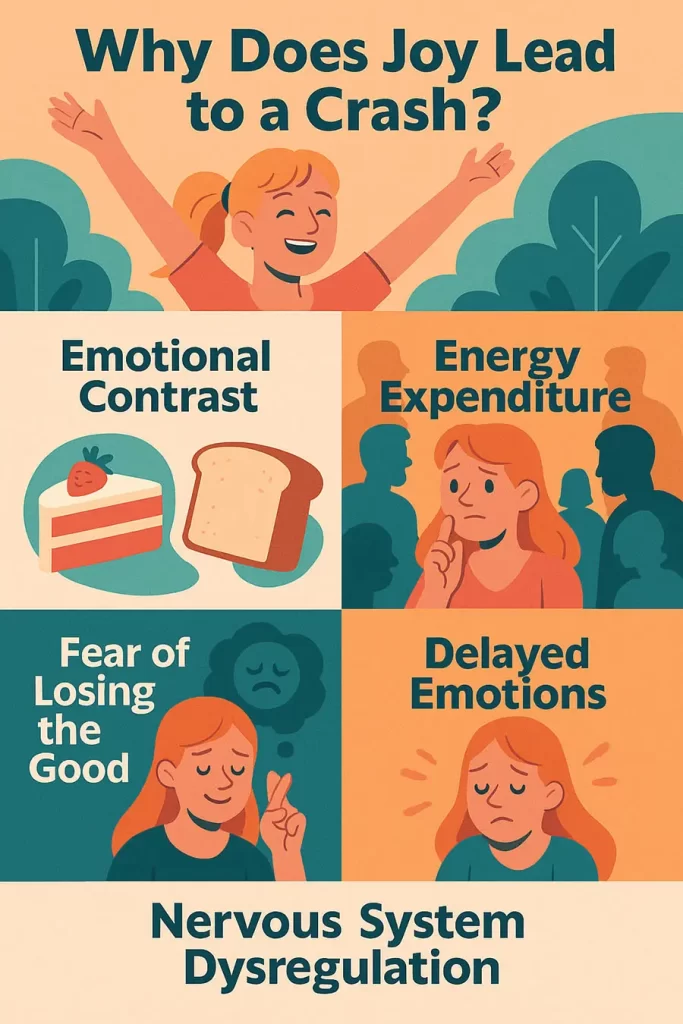
I remember one perfect day brunch with friends, a long walk, music blasting. I felt on top of the world. But the next morning, I was flat. Not sad, just… empty. Like my heart forgot how to feel. It wasn’t that the joy wasn’t real it was just my brain needing a breather. 😅
The Science Behind Emotional Whiplash
Let’s get nerdy for a sec. Your brain’s a complex machine, and emotional crashes are all about how it handles intense feelings. When you’re joyful, your brain releases dopamine and serotonin, the “feel-good” chemicals. These give you that high, but they’re temporary. When they drop, you might feel a void, like coming down from a sugar rush.
Your autonomic nervous system (ANS) also plays a big role. The sympathetic nervous system (SNS) kicks in during high-energy states like joy, pumping out adrenaline to keep you alert. The parasympathetic nervous system (PNS) is supposed to calm you down, but if it’s out of whack say, from chronic stress or trauma the transition can be rough, leading to a crash. Scientific American says chronic stress can shrink areas like the prefrontal cortex (decision-making) and hippocampus (memory), making emotional regulation harder.

For highly sensitive people or those with trauma, the amygdala (emotion center) can overreact, amplifying both joy and the crash that follows. A 2020 study in Frontiers in Psychology found that emotional dysregulation is linked to a 30% increase in stress-related symptoms, like fatigue and brain fog. So, when you crash after a good day, it’s not you being “weak” it’s your brain trying to keep you safe
Is It Depression or Just a Crash?
Is this the same as depression? Not always. Depression is a persistent low mood, loss of interest, and other symptoms lasting weeks or more, per the National Institute of Mental Health.
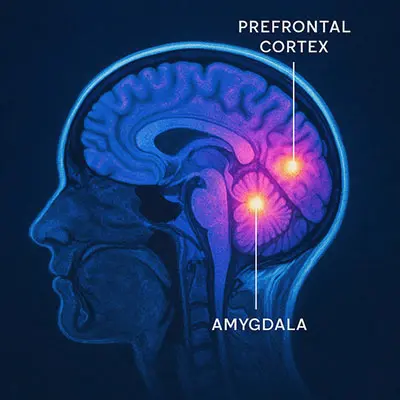
An emotional crash is usually temporary, tied to a specific high-energy event, and fades with rest. But if crashes happen a lot or feel heavy, it could be a sign of depression or anxiety, so it’s worth checking in with a pro.
Here’s how to tell the difference:
 Emotional Crash: Short-lived (hours to a couple days), tied to a joyful event, often feels like numbness or exhaustion.
Emotional Crash: Short-lived (hours to a couple days), tied to a joyful event, often feels like numbness or exhaustion. Depression: Lasts weeks, includes persistent sadness, hopelessness, or loss of interest in life.
Depression: Lasts weeks, includes persistent sadness, hopelessness, or loss of interest in life.
I thought my crashes were depression at first, but they’d pass after a day of rest. If you’re not sure, track your mood for a week or two it helped me see the pattern. 😊
Ultimate Mental Wellness Test: Discover Emotional Health Just in 3 Min
Ever wonder where you stand with your mental health? That’s where our quick question Mini Mental Health Check comes in. It’s like a quick peek into your brain, giving you insights into your anxiety, burnout, and self-esteem levels.
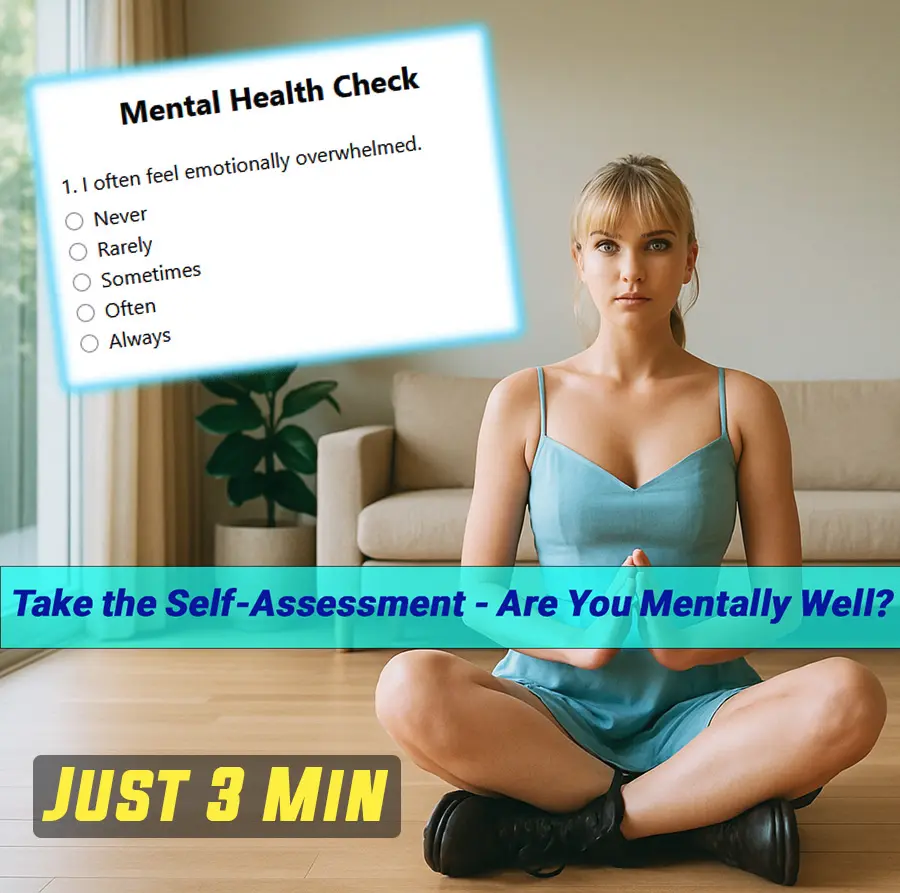
Real Stories: When Happiness Feels Heavy
Let’s make this real with some stories (names changed for privacy):
- Maya, 27: “I had this amazing weekend hiking, laughing with friends, feeling alive. But Monday, I was a zombie. I couldn’t focus, and I felt so guilty for not staying happy. Journaling helped me realize it was just my brain needing a break.”
- Liam, 31: “After a great date night, I’d wake up feeling empty. I thought something was wrong with me, but my therapist said it’s my nervous system adjusting. I started doing short walks after big days, and it’s helped.”
- Sam, 29: Sam, who’s queer, said, “I’d crash after fun community events because I was so used to bracing for judgment. Joining a supportive group and limiting social media helped me recover.”
These stories show that emotional crashes aren’t a sign you’re broken they’re a signal to slow down and care for yourself

How to Navigate the Post-Joy Slump
Can I avoid the crash? You might not dodge it completely, but you can soften it with these practical tips, backed by experts and my own trial-and-error:
- Acknowledge the Crash: Don’t beat yourself up for feeling off. Say, “This is my body coming down from joy.” It takes the shame out of it.
- Practice Self-Compassion: Remind yourself it’s okay to feel this way. Kristin Neff says self-compassion reduces stress and boosts resilience.
- Ground Yourself: Do low-energy, grounding activities like sipping tea, taking a slow walk, or listening to soft music. I love curling up with a warm blanket and some lo-fi tunes.
- Journal Your Feelings: Write down what you’re feeling, even if it’s just “I’m blank.” It helps you process without pressure.
- Pace Your Joy: Don’t pack your good days with too much. Leave space for rest afterward. I learned this after overdoing a fun weekend less is more.
- Limit Social Media: Comparison or overstimulation can make crashes worse. I unfollowed accounts that made me feel “less than” after a good day.
- Connect Lightly: Spend time with loved ones in low-pressure ways, like watching a funny movie. It keeps connection without draining you.
Objection: “These won’t work for me.” I get it when you’re in a slump, nothing feels doable. But start small. Even one deep breath or a 5-minute walk can shift things. It’s not about fixing everything it’s about opening the door a crack. 😊

Emotional Crashes in the LGBTQ+ Community
For folks in the LGBTQ+ community, emotional crashes can hit harder due to unique stressors like discrimination, family rejection, or identity struggles. A friend of mine who’s trans said, “After a great day at a queer event, I’d crash because I was so used to bracing for judgment elsewhere.”
Finding affirming spaces like online support groups or queer-friendly therapists helped them process these highs and lows. If you’re part of the community, prioritize spaces where you feel safe to be yourself. It’s like giving your nervous system a warm hug, making those crashes a little softer. 😊
When to Seek Help
If emotional crashes are frequent, last more than a few days, or mess with your work, relationships, or health, it’s time to talk to a pro. A therapist can help you explore if anxiety, depression, or trauma is at play. NAMI suggests cognitive behavioral therapy (CBT) or mindfulness-based therapy for emotional regulation. I saw a therapist when my crashes started happening weekly, and it helped me see they were tied to stress, not failure. Reaching out is a sign of strength, not weakness.

Frequently Asked Questions
Not at all. Emotional crashes are a normal response to intense joy, especially if you’re sensitive or stressed. Your nervous system’s just regulating itself.
Not always. Crashes are usually short-lived, tied to a joyful event, while depression is persistent low mood and loss of interest. If crashes linger, talk to a pro.
You might not avoid it completely, but pacing yourself during joyful days and resting afterward can soften the drop. Managing stress helps too.
Guilt can come from feeling like you “should” stay happy or comparing yourself to others. It’s okay to have emotional ups and downs.
Be patient, listen without judgment, and suggest low-pressure activities like watching a movie together. Avoid pushing them to “cheer up.”
Emotional crashes can happen to anyone, but frequent or extreme mood swings might suggest bipolar disorder. A therapist can help clarify.
Conclusion
The crash after a good day isn’t a sign you’re broken or that your joy was fake it’s your nervous system’s way of regulating after intense emotions. Whether it’s from stress, sensitivity, or just life’s ups and downs, you can navigate these slumps with self-compassion and small, grounding steps. You don’t have to stay happy all the time to be okay. Your joy’s still real, even if it comes with a comedown. So, take a deep breath, give yourself some grace, and try one tiny step today. You got this 😊
Had a crash after a great day? Share your story in the comments or try one of our tips and let us know how it goes. We’re all in this together!

Citations
- Psychology Today: Explains emotional crashes (“meltdowns”) and offers practical coping strategies
- Healthline: Guide to building emotional regulation skills recognizing feelings, pausing, and responding mindfully
- Scientific American: Shows how chronic or acute stress impairs the prefrontal cortex and heightens emotional reactivity
- NAMI: Offers peer-led support groups, education, and advocacy to support mental wellness and emotional stability
- Verywell Mind: Practical strategies to improve self-regulation journaling, mindfulness, identifying triggers and practicing delay before reacting
Internal Links
✨ Last updated on 08.08.2025
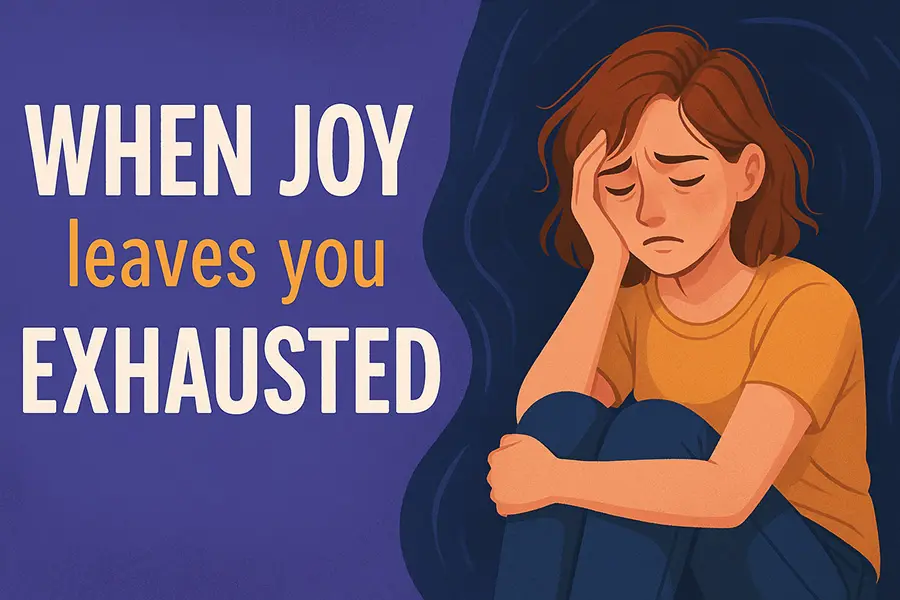
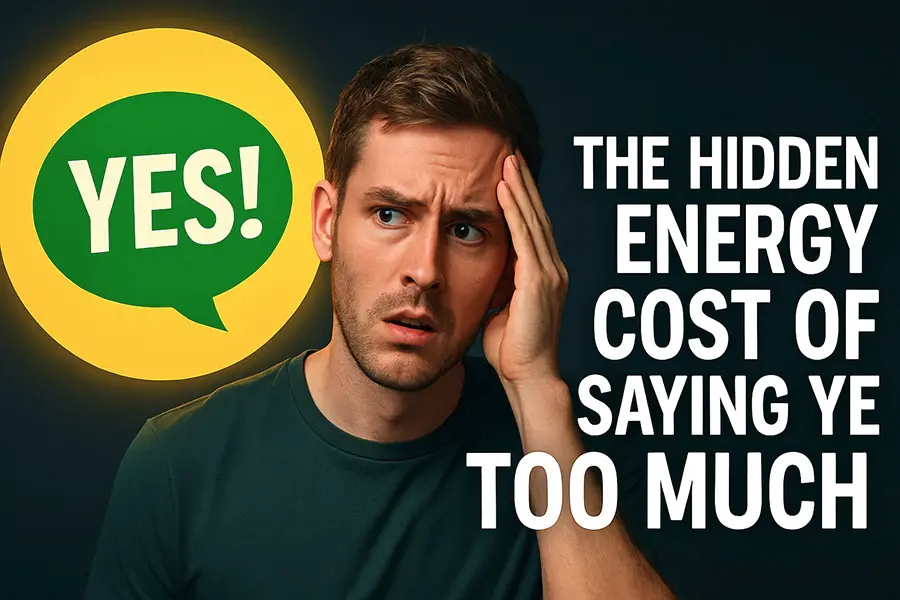
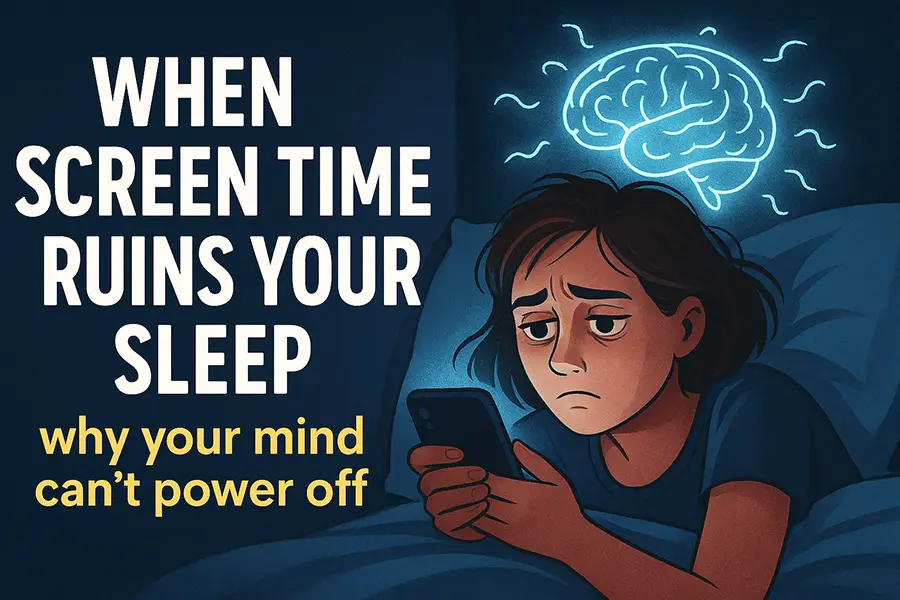

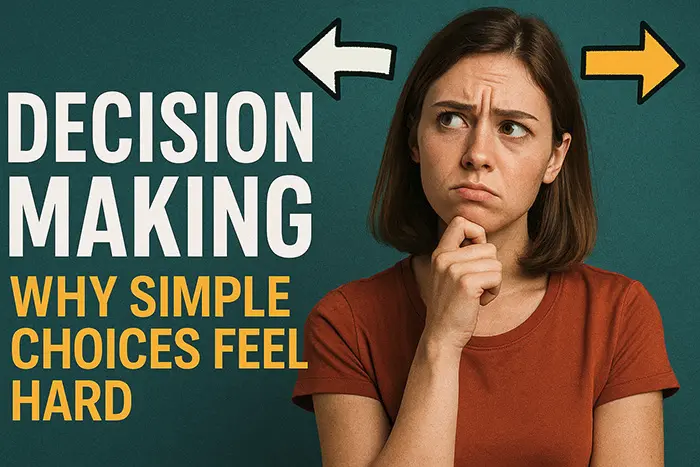
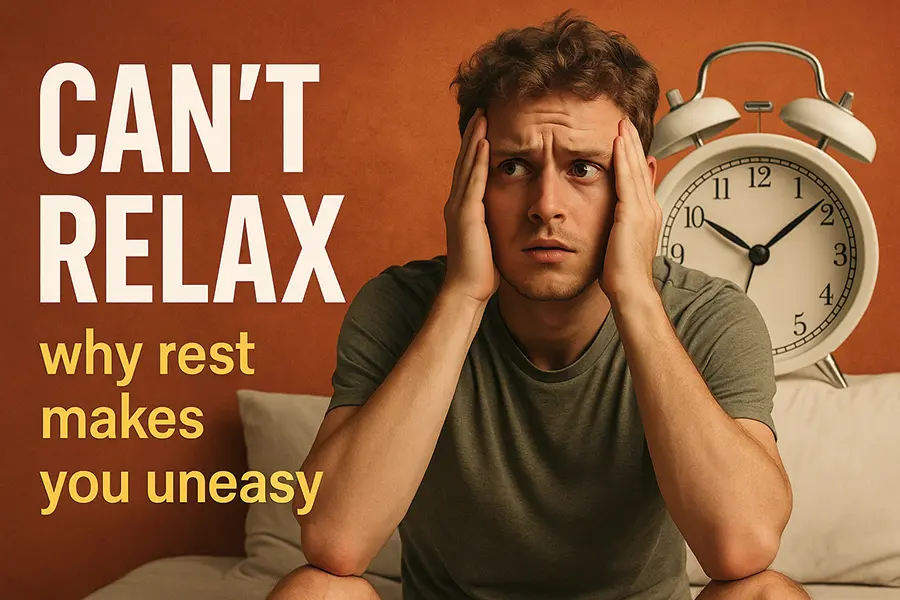
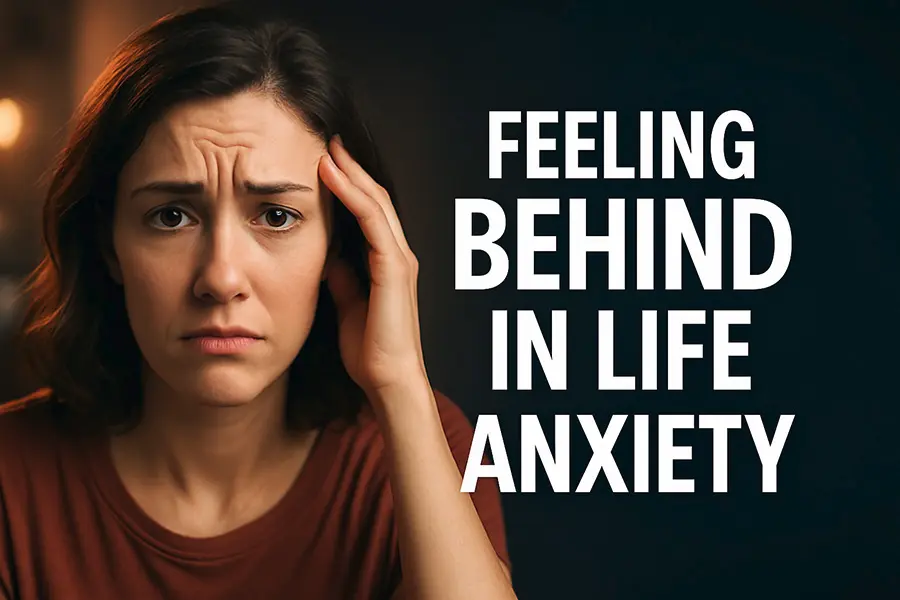
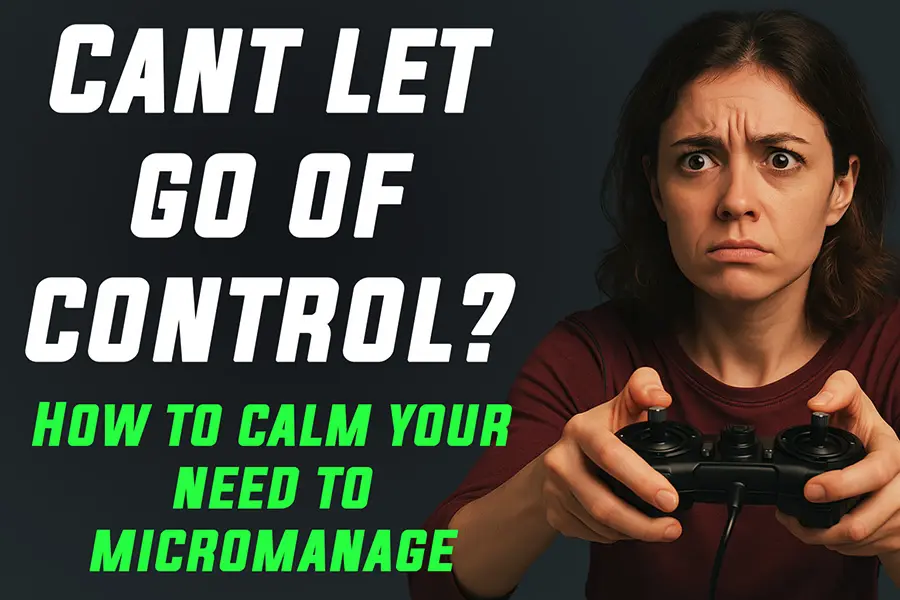
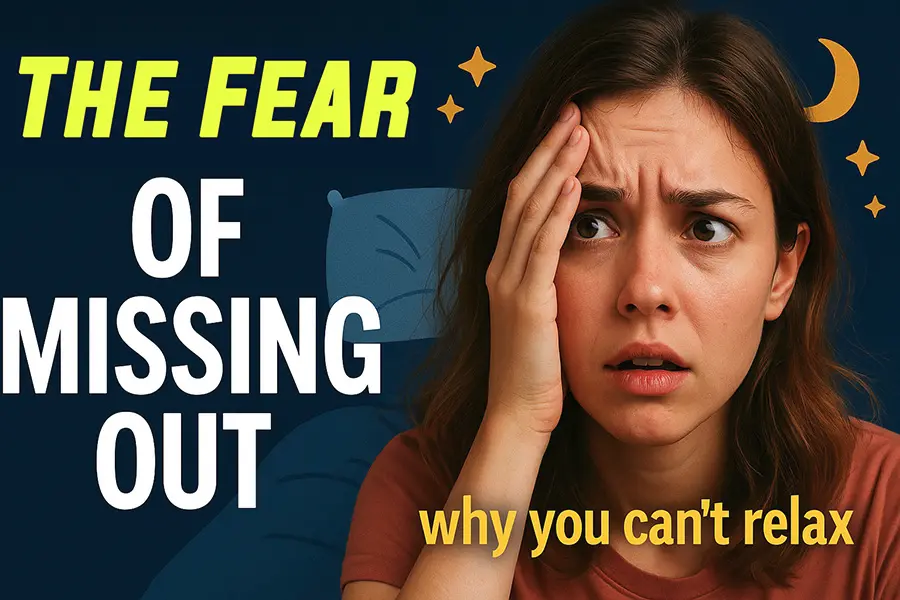

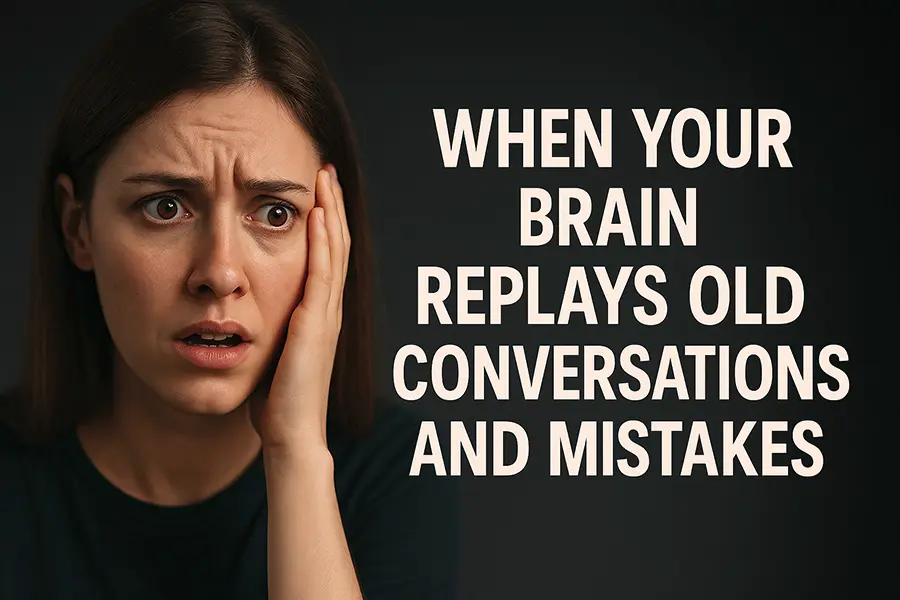
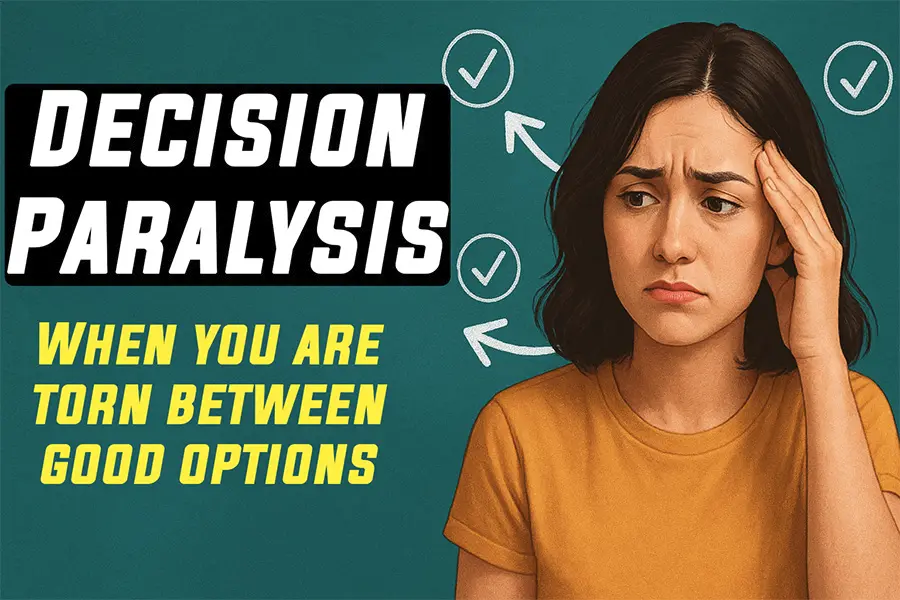




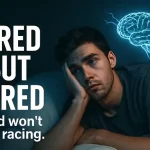





Leave a Reply